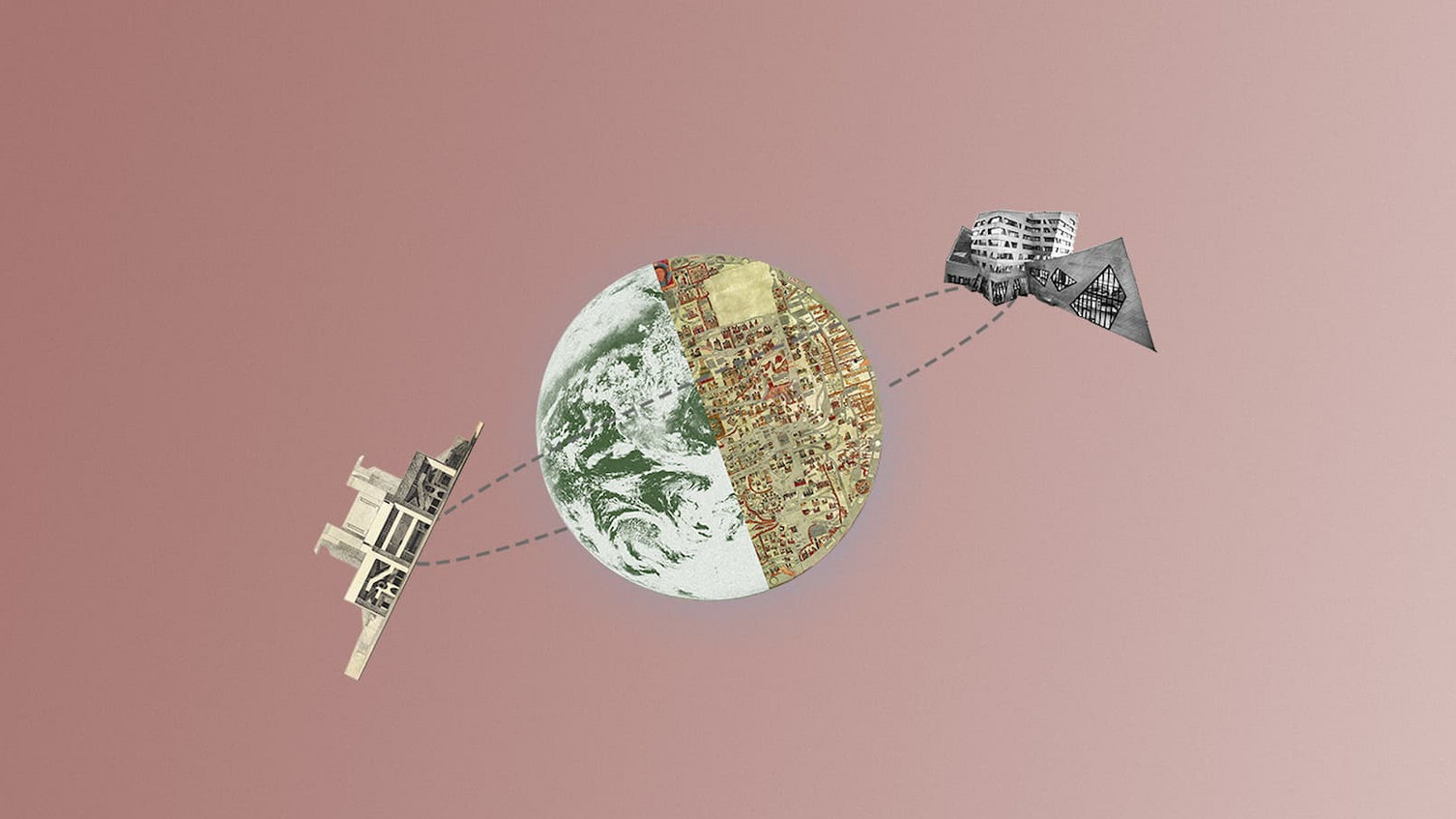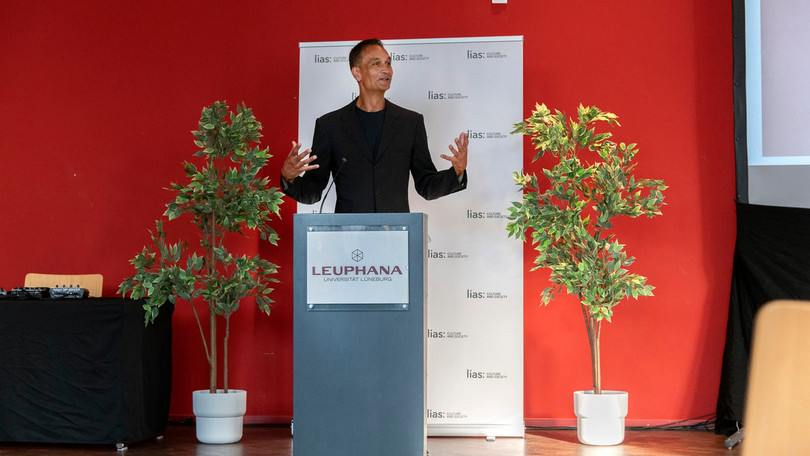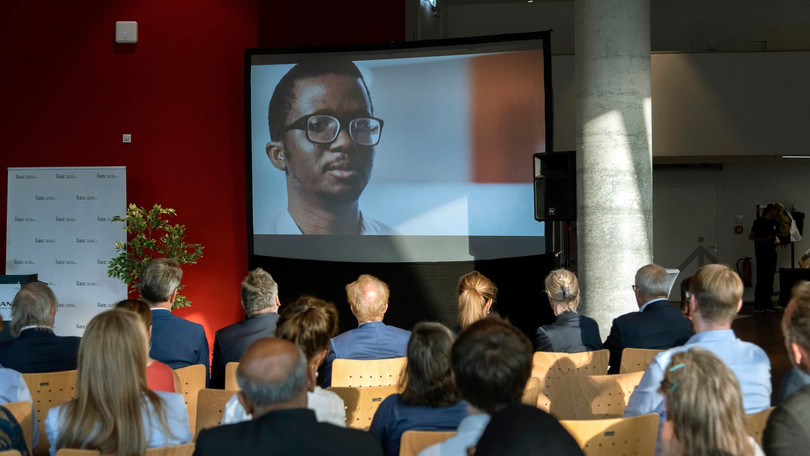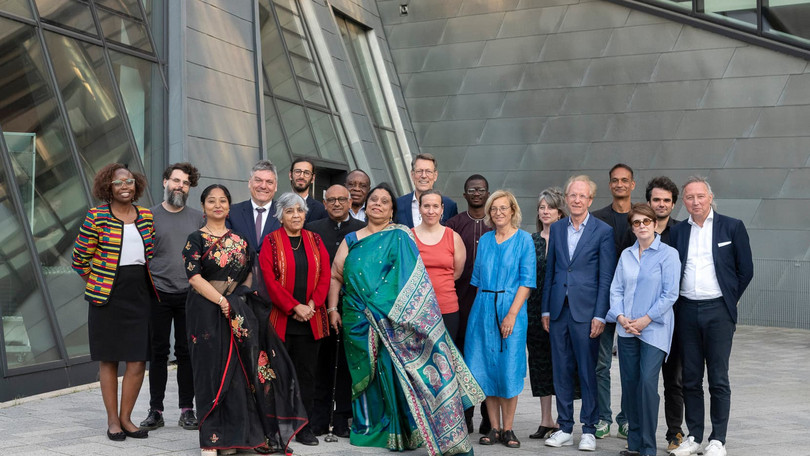Opening Days of the Leuphana Institutes for Advanced Studies (LIAS) of Culture and Society
Those who approach the problems of the present with quick solutions overlook their historical development. LIAS relies on criticism, imagination and the uncovering of the overlooked.
2023-06-14 Alain Pottage, a law scholar at Science Po in Paris and a member of the advisory board of the just-opened Leuphana Institute for Advanced Studies (LIAS) in Culture and Society, asked the guests at the opening ceremony whether they felt the "intellectual energy" that constitutes the special spirit of LIAS. With a generative collegiality, Pottage said, the team succeeds in creating a dynamism and ecology as well as that framework which, in his view, animates the LIAS community.
Pottage was able to explain what this means right away. He saw a way of asking cross-cutting questions that transcend different social fields realised in a bar camp with Senior Fellow Radha d'Souza on the afternoon of the previous day. What the law scholar from Westminster University in London offered the students was not knowledge, but a scientific technique of research and questioning.
After they had examined common explanations of the climate crisis in working groups - as a weather phenomenon, as a consequence of the Anthropocene or as a goal of political agreements, such as the Kyoto Protocol - d'Souza surprised the students with her thesis that the climate crisis is rooted in our understanding of law, more precisely, in the legal basis of companies as "corporations". This is the subject of her project at LIAS in Culture and Society.
The directors of LIAS, Susanne Leeb and Erich Hörl, are convinced that the problems of the present cannot be tackled in any other way than by transcending academic disciplines. In the first Institute for Advanced Studies at Leuphana University, interdisciplinarity is the answer to the global interconnection of social, technological, cultural, economic and ecological phenomena.
 ©Collage: Niklar Keller; NASA (1972); Ebstorf World Map (um 1300), gemeinfrei via wikimedia; Daniel Sumesgutner
©Collage: Niklar Keller; NASA (1972); Ebstorf World Map (um 1300), gemeinfrei via wikimedia; Daniel Sumesgutner
The complex interconnections are often hidden - and this is the starting point of research in the sense of LIAS, because sooner or later every research question reaches the point where connections between phenomena, people and lives come to light. That is why LIAS has dedicated itself to another motto: "Co-existence in a globalised world".
A good example was provided by Lydia Ouma Radoli, who led the first "LIAS Intervention" with journalists from Germany, America, Kenya, Uganda and Rwanda. The format specifically links LIAS Fellows with non-academic actors. Based on Radoli's research project "The Visual Witnessing of Trauma Phenomena among Journalists", academics and practitioners came together to discuss the conditions and consequences of traumatising crisis and war reporting. A central result of the open exchange was that it is necessary to think about alternative formats in media production that dehumanise and trivialise the trauma experiences of journalists, and to intensify research.
Erich Hörl emphasised the role of the social sciences and humanities in these social realities, which are also characterised by incessant acceleration. The short-circuits between problem and solution, which are also fuelled by a strategy of solutionism - the technical generation of solutions before the problem has been defined - has long since taken hold of research and teaching. According to Hörl, it is not enough to focus on reflection. Much more urgently, the social sciences and humanities need a strengthening of the "ability to strive" (Arjun Appadurai) in order to be able to formulate a desirable future. This is to be achieved at LIAS with critical faculties, imagination and the involvement of people who question ways of thinking and living. According to Hörl, the fact that there are "no alternatives" has been a dominant doctrine since the 1970s, which LIAS wants to counter with the production of possibilities and problems. Instead of succumbing to a dynamic of generating solutions, the social sciences and humanities must generate what has been overlooked or distorted. With regard to cybernetic processes of the digitalised present, this means, for example - and here Hörl referred to the research project of one of the Fellows, Daniel Nemenyi - understanding artificial intelligence not as a tool of control, but of dealing with chance. "Thinking," said Erich Hörl, "means creating what is not yet there, overlooked or discarded by structural distortions of the algorithms."



